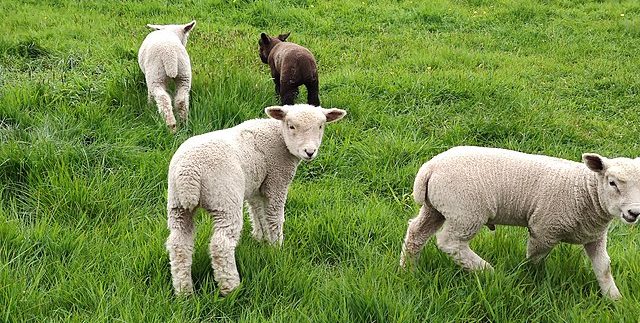The market value of lambs has been decreasing slightly in recent months in Portugal, reveals to “CA” António Lopes, president of the board of directors of the Grouping of Livestock Producers “Carnes do Campo Branco”, based in Castro Verde.
According to him, “the market values [of lamb] have already been much better and, at this moment, they’ve even gone down”, despite the fact that we’re in the season of greater consumption of this meat.
“It wasn’t much, but they went down a bit”, and “lambs with 25 kilos can still be sold for 95/100 euros”, he adds.
António Lopes also reveals that “the number of animals sold is similar” to the previous year, at around 12,000 animals.
The sheep are sold to “fatteners”, who prepare them and then sell them to Portugal and abroad, especially to the Israeli market.
“If we had a strong grouping here at the district level, we would do that work ourselves. Since we don’t have one, we have to pass it on to them [the fatteners] and the added value also passes on to them,” laments António Lopes.
“Lambs with 25 kilos can still sell for 95/100 euros”, reveals the president of the ‘Carnes do Campo Branco’ group, António Lopes.
Along with this issue, the president of the “Carnes do Campo Branco” Group also regrets the lack of pastures, due to the drought, and the increase in the cost of production factors, which has a great financial impact in the Portuguese cattle farms in the region.
“At this time we should be with the animals in the field without making expenses and what happens is that they walk in the field but have to eat ‘by hand’, because there is no pasture. And what is certain is that the price of meal is still very high. That is, although the price [of lambs] is not much lower, it is much less in our hands. The profitability is much lower,” says António Lopes.
All this has led to a decrease in the number of livestock at Campo Branco, “because people can’t stand it”.
“There are no prospects of rain, there are no pastures, there are no reserves at home, and people are desperate and are starting to sell their herds”, observes António Lopes, assuring that many farmers are selling a large part of their cattle “for slaughter.”
“Maybe we’ve already reduced 4,000 to 5,000 animals. And with the sheep we’re starting to go the same way, because people can’t afford to feed the animals. No one can afford just to buy flour and straw. It’s very complicated,” he concludes.
Source: Correioalentejo.com
